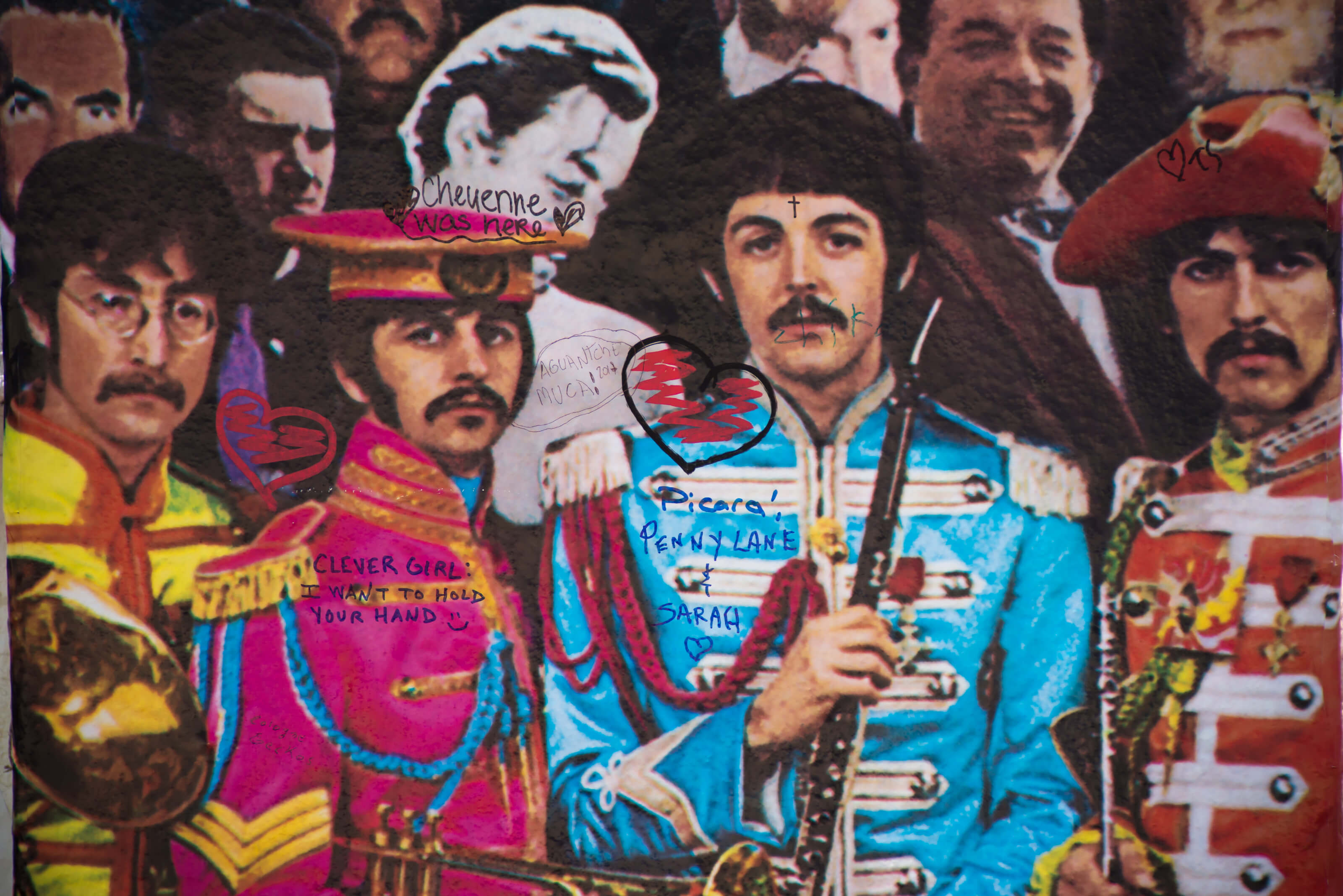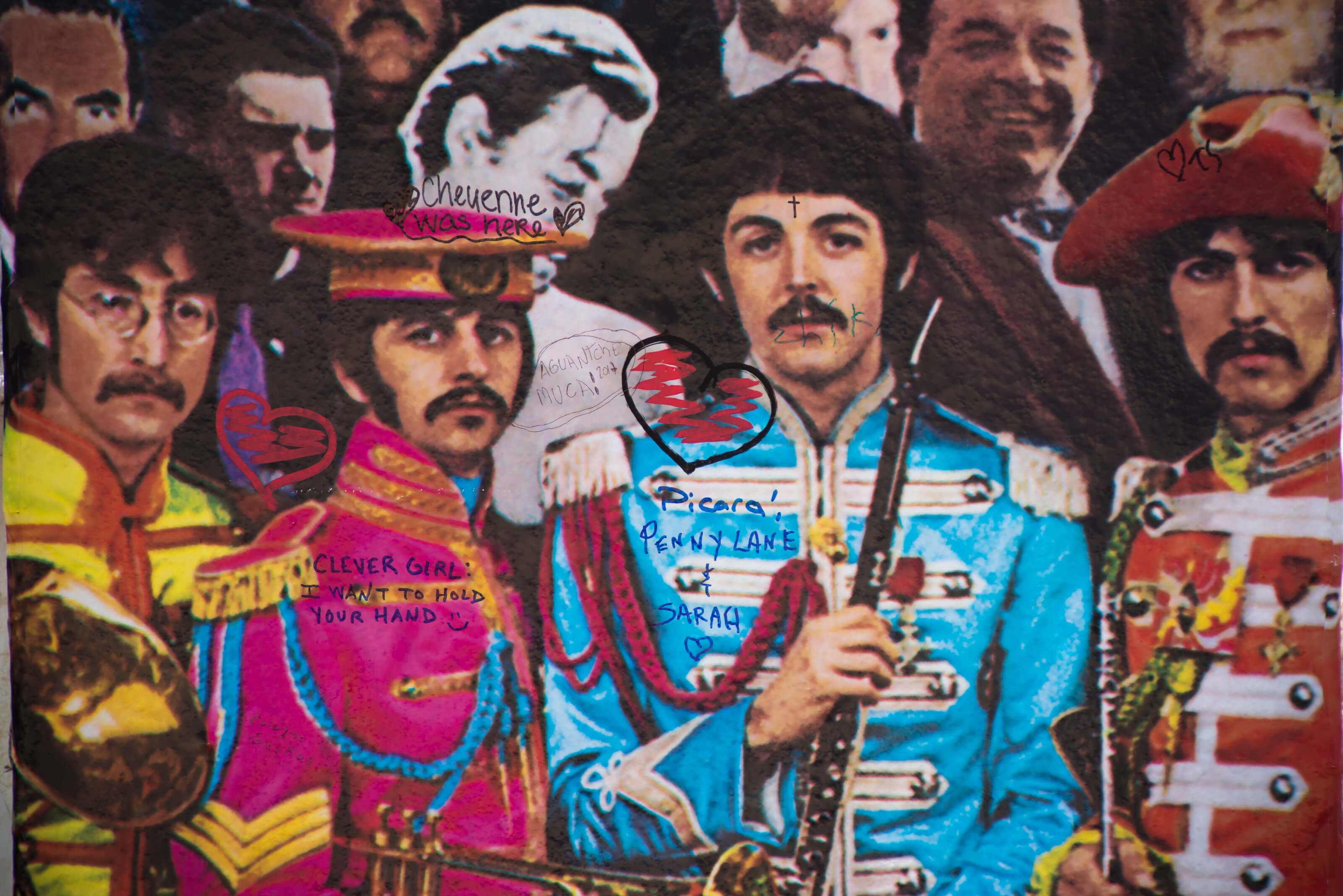
John Lennon Said The Beatles’ ‘Sgt. Pepper’ ‘Doesn’t Go Anywhere’
John Lennon felt The Beatles‘ Sgt. Pepper’s Lonely Hearts Club Band didn’t “go anywhere.” He felt only a few tunes on the album connected to each other. Today, Sgt. Pepper looks like a scattershot concept album, especially compared to the work of other artists like David Bowie.

What Paul McCartney was trying to accomplish with The Beatles’ ‘Sgt. Pepper’
The book All We Are Saying: The Last Major Interview with John Lennon and Yoko Ono features a 1980 interview. In it, John discussed what Paul McCartney said about Sgt. Pepper. “As I read the other day, he said in one of his ‘fanzine’ interviews that he was trying to put some distance between The Beatles and the public — and so there was this identity of Sgt. Pepper,” John said.
“Intellectually, that’s the same thing he did by writing ‘He loves you’ instead of ‘I love you,'” he continued. “That’s just his way of working. Sgt. Pepper is called the first concept album, but it doesn’t go anywhere.”
John Lennon didn’t make The Beatles’ concept album any more consistent
John also discussed his impact on Sgt. Pepper. “All my contributions to the album have absolutely nothing to do with this idea of Sgt. Pepper and his band; but it works ’cause we said it worked, and that’s how the album appeared,” he opined.
John discussed Sgt. Pepper in light of the band’s other albums. “But it was not as put together as it sounds, except for Sgt. Pepper introducing Billy Shears and the so-called reprise,” he added. “Every other song could have been on any other album.”
‘Sgt. Pepper’ wasn’t the 1st concept album and it wasn’t the most coherent either
John was wrong about numerous things, but he was sadly correct about the album. The first song on the record, “Sgt. Pepper’s Lonely Hearts Club Band,” gracefully segues into “With a Little Help From My Friends.” Aside from the reprise of the title track near the end of the record, Sgt. Pepper is never cohesive. It’s anyone’s guess as to how such diverse tunes as “Being for the Benefit of Mr. Kite!,” “When I’m Sixty-Four,” and “Within You Without You” relate to each other. The album doesn’t even adhere to one musical style, switching from psychedelia to vaudeville to hard-rock.
Sgt. Pepper probably wasn’t even the first concept album. According to Rolling Stone, one of the first concept albums was likely Woodie Guthrie’s Dust Bowl Ballads. That record came out in 1940, a whopping 27 years before Sgt. Pepper. Each of the tracks on Dust Bowl Ballads relates to American history or culture in some way.
In terms of cohesiveness, Sgt. Pepper was blown away by 1970s concept albums. David Bowie’s seminal concept record The Rise and Fall of Ziggy Stardust and the Spiders from Mars and Pink Floyd’s juggernaut The Wall tell actual stories. If Sgt. Pepper is a milestone in the history of concept albums, it’s just because it popularized the art form.
Sgt. Pepper is a collection of great songs that don’t connect to each other.


